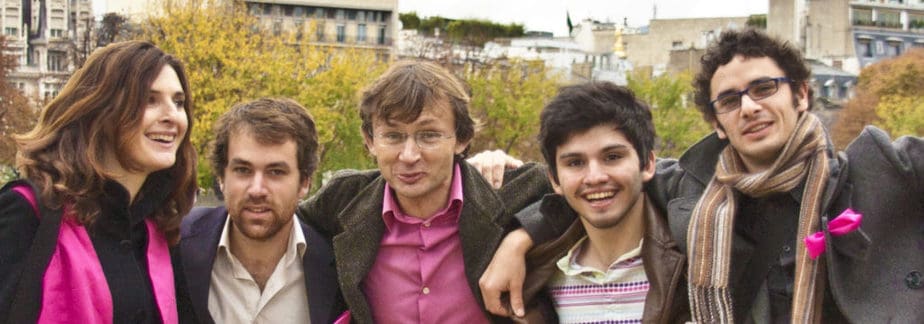
Hugo Grotius. Photo by Michiel Jansz. van Mierevelt. Wikimedia Commons
Top 10 Fascinating Facts about Hugo Grotius
Hugo Grotius also known as Huig de Groot was a Dutch humanist, diplomat, lawyer, theologian, jurist, poet and playwright born on 10th April, 1583 and died on 28th August, 1645.
He was born in Delft, studied at Leiden University and was a teenage intellectual prodigy.
During the sixteenth and seventeenth century, Hugo Grotius was a major figure in the fields of philosophy, political theory and law.
The top 10 fascinating facts about Hugo Grotius include the following.
1. Hugo Was A Teenage Intellectual Prodigy

Hugo Grotius.Photo by Unknown author. Wikimedia Commons
Hugo Grotius was the first child of Jan Cornets de Groot and Alida van Overschie and was born in Delft during the Dutch Revolt.
Hugo entered the Leiden University when he was just eleven years old as he was a prodigious learner.
While at Leiden University he studied with Franciscus Junius, Joseph Justus Scaliger, and Rudolph Snellius who were some of the most acclaimed intellectuals in northern Europe.
2. Hugo Was Hailed as the Miracle of Holland And Authored Books While A Teen

King Henri VI . Photo by Royal Collection. Wikimedia Commons
At the age of 15 years, he accompanied Johan van Oldenbarnevelt to a diplomatic mission in Paris in 1598. The King Henri IV of France presented Hugo to his court as “the miracle of Holland” during the mission.
He passed or bought a law degree from the University of Orleans during his stay in France
He published his first book: a scholarly edition of the late antique author Martianus Capella’s work on the seven liberal arts, Martiani Minei Felicis Capellæ Carthaginiensis viri proconsularis Satyricon in 1599 at the age of 16.
3. Hugo Made Natural Law the Center of His Jurisprudentia
Hugo Grotius earned an appointment as an advocate to The Hague and then as official historiographer for the States of Holland while still a teen in 1599 and 1601 respectively.
Since Hugo was indeed a contemporary with the Eighty Years’ War between Spain and the Netherlands, the Dutch tasked him to write their story to better stand out from Spain.
Grotius placed natural law at the center of his jurisprudentia following Roman law and the work of the Stoics.
He argued that a law would have validity if it is deduced from man’s inherent nature.
4. Hugo Grotius Has Been Called the Father of International Law

Portuguese Carracks. Photo by anonymous. Wikimedia Commons
When Dutch merchants seized a Portuguese carrack and its cargo in the Singapore Strait in 1604, Hugo seized the opportunity to write systematically on issues of international justice.
The seizure led to a public judicial hearing as there was divided opinion on what should be done to the seized cargo.
Hugo was requested to draft a polemical defense of the seizure by the Dutch merchant company as the Portuguese were demanding for return of their cargo.
As a result of this Hugo formulated the new principle based on natural law.
He wrote that the sea was international territory and all nations were free to use it for seafaring trade in The Free Sea book published in 1609.
His masterpiece De Jure Belli ac Pacis is considered one of the greatest contributions to the development of international law and was published in 1625.
5. Hugo’s Notion of The Freedom of The Seas Persist to This Day
It is generally assumed that Hugo Grotius first propounded the principle of freedom of the seas.
However, the right of unobstructed navigation long before Hugo wrote his De Jure Praedae in English On the Law of Spoils in the year of 1604 was accepted by all countries in the Indian Ocean and other Asian seas.
Hugo’s notion of the freedom of the seas would persist until the mid-twentieth century, and it continues to be applied even to this day for much of the high seas.
Nevertheless, the application of the concept and the scope of its reach has been changing in recent times.
6. Hugo Made Considerable Advances in His Political Career

Johan van Oldenbarnevelt. Photo by. Workshop of Michiel Jansz. van Mierevelt. Wikimedia Commons
Hugo Grotius made considerable advances in his political career aided by his continued association with Johan Van Oldenbarnevelt.
Johan van Oldenbarnevelt was a Dutch statesman and revolutionary. He played an important role in the Dutch struggle for independence from the Habsburg Castilian Empire in the 1600s.
Hugo was retained as Oldenbarnevelt’s resident advisor in 1605 and Advocate General of the Fisc of Holland, Zeeland and Friesland in 1607.
He became the Pensionary of Rotterdam; a position that was equivalent of a mayoral office in 1613.
7. Hugo Grotius Wrote in A Variety of Fields Throughout His Life
In 1601 the States of Holland requested from Hugo an account of the United Provinces’ revolt against Spain which he wrote in the manner of the Roman historian Tacitus for the period 1559 to 1609.
The book titled Annales et Historiae de Rebus Belgicis was published posthumously in 1657. Grotius wrote in a variety of fields throughout his life.
He edited, with commentary, an encyclopedic work on the seven liberal arts by the North African poet Martianus Capella.
He wrote a number of philological works and a drama and also published many theological and politico-theological works including The Truth of the Christian Religion which among his works was very popular.
8. Hugo Was Involved in Bitter Religious Controversies of His Time
Hugo was engaged in the bitter political struggle under Oldenbarnevelt against the Gomarists.
Gomarists were orthodox Calvinists led by Franciscus Gomarus who were dominant among the ministers and the populace.
Hugo and Oldenbarnevelt were members of Remonstrants who were primarily upper-class “regents” siding with Jacobus Arminius’s tolerant Protestantism.
The Gomarists who were under the leadership of Prince Maurice engaged with Remonstrants for control of the country.
9. Hugo Gratius Escaped from Prison by Hiding in A Chest of Books
Using his military powers in a coup d’état Prince Maurice, ordered the arrest of Arminian leaders including Oldenbarnevelt and Hugo in 1618.
Hugo Grotius was sentenced to life imprisonment in the fortress of Loevestein while Oldenbarnevelt was executed for high treason.
However, with the aid of his wife, Grotius made a dramatic escape from the castle by hiding in a chest of books in 1621.
He fled first to Antwerp and finally to Paris where under the patronage of Louis XIII he stayed until 1631.
10. Hugo Was the Ambassador of Sweden In Paris
The Swedish chancellor, Axel, Count Oxenstierna, offered him the position of Swedish ambassador in Paris in 1634 which he accepted together with Swedish citizenship.
He proceeded to settle in Paris even though he was more successful as a scholar than he was as a diplomat.
Planning a trip to Paris ? Get ready !
These are Amazon’s best-selling travel products that you may need for coming to Paris.
Bookstore
- The best travel book : Rick Steves – Paris 2023 – Learn more here
- Fodor’s Paris 2024 – Learn more here
Travel Gear
- Venture Pal Lightweight Backpack – Learn more here
- Samsonite Winfield 2 28″ Luggage – Learn more here
- Swig Savvy’s Stainless Steel Insulated Water Bottle – Learn more here
Check Amazon’s best-seller list for the most popular travel accessories. We sometimes read this list just to find out what new travel products people are buying.









